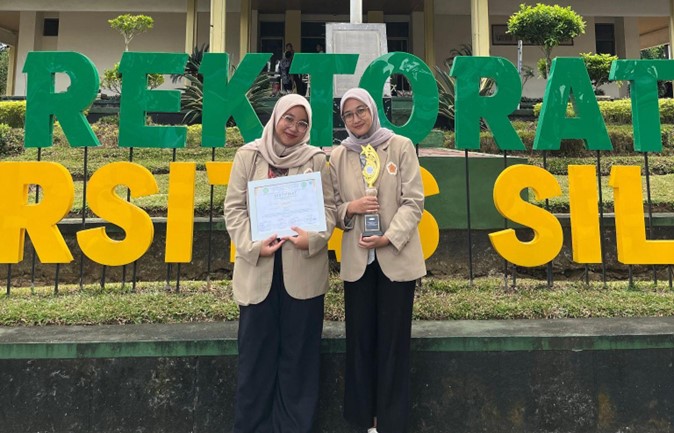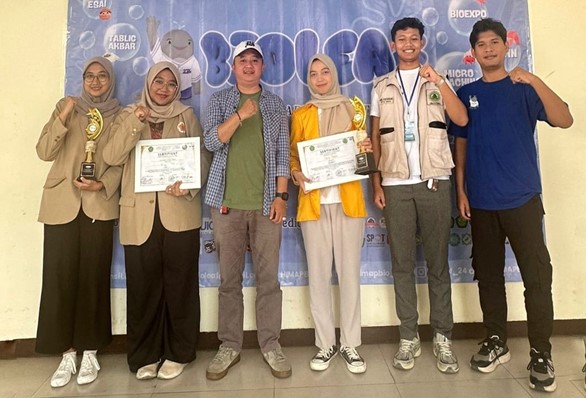Biology students at Universitas Gadjah Mada (S1) made another achievement by winning first place at the national-level Biology Learning Festival Essay Competition organized by Universitas Siliwangi on October 17, 2024. This achievement was achieved by a team chaired by ASyafira Nurul Aisya (Biology 2021) and its member Fadlilah Rahma Julianty (Biology 2021) under the guidance of Prof. Dr. rer. nat. Andhika Puspito Nugroho, S.Si., M.Si.

The team presented ”Study on the Potential of Pseudomonas, Agrobacterium, Sulfolobus, and Alteromonas as Biodegradation Agents for Chlorpyrifos Contamination through a Molecular Docking Approach,” competing against 11 teams from various universities across Indonesia. The research was motivated by the issue of increased pest incidence due to climate change, which increased chlorpyrifos insecticide usage, resulting in environmental contamination. Chlorpyrifos contamination in agricultural and plantation settings poses risks to ecosystems and human health, necessitating its degradation into environmentally safe products through bioremediation processes.

“We explored microorganisms capable of degrading chlorpyrifos insecticides and evaluated them in silico to identify potential candidates that could serve as bioremediation agents,” said Syafira.
Through this research, Syafira and Fadlilah hope to lay the groundwork for further studies on developing microorganism-based biodegradation methods, particularly in addressing chlorpyrifos insecticide pollution, which remains a challenge in various agricultural and plantation sectors in Indonesia. The further development of this study is anticipated to provide eco-friendly solutions to address the challenges of hazardous chemical contamination. They also hope this work can be patented as a commercial biodegradation technology applicable across various industrial and agricultural sectors.
This achievement not only brings pride to the team but also motivates other students to continue developing innovative solutions to environmental issues. Additionally, it encourages the UGM Faculty of Biology to persist in supporting sustainable, relevant, and practical research.
Authors: Fadlilah Rahma Julianty and Syafira Nurul Aisya

